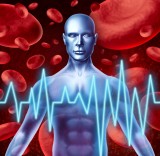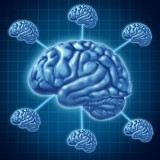Browse Library Database [N]
This is out Library. Please click on the article title to view the details.
Nitrates, Good or Bad?
submitted by: admin on 10/12/2013
Nitrates are chemicals are found in our food. Usually we think of them as being dangerous and not healthy because they turn to Nitrosamines which are carcinogenic. Usually this occurs when food is cooked at higher temperatures, or when it is barbequed. Many meat products contain nitrates as a preservative. Meats such as bacon, hot dogs, sausages,...
nnr.8.25.2012
submitted by: admin on 02/14/2026
The description for this show is:
What practice reduces loneliness, stress, and Inflammation?
What drugs commonly used in type 2 diabetes cause cancer?
Should MDs be paid on the basis of performance?
What will the Affordable Care Act do do quality of care, cost, and MD availability?
Is lack of exercise a disease?
VIcki's 20-20 tips...
Non-Steroidal Anti-inflammatory Drugs Contraindicated After Shoulder Surgery
submitted by: admin on 02/14/2026
These NSAIDs are widely used reflexively. After surgery they interfere with bone to tendon healing. It makes one wonder what happens in other situations. They reduce inflammation but retard healing. They aren't safe.
Not Being Fed When We're Hungry as Infants with Julie Motz
submitted by: admin on 10/12/2013
One of the earliest challenges in life is frustration is about not being fed when hungry. This can feel like death to an infant; it becomes a life or death issue. This old behavior pattern can lead to overeating later in life.
Not Knowing is a Healthy Start with Scout Bartlett
submitted by: admin on 10/12/2013
After we have completed our training, we have the idea we are supposed to know everything about it or we have failed. It is no different in medicine. It is healthy to realize that it is okay to say when we don't know.
NSAIDs
submitted by: admin on 10/12/2013
This class of drugs should be removed from our pharmacies. Problems associated with these drugs include, GI bleeding, ulcers, kidney failure, heart attacks, strokes, atrial fibrillation, miscarriage, elevated blood pressure, congestive heart failure and more! They account for 30,000 deaths annually and more than 300,000 hospitalizations. There are...
NSAIDs and Heart Attacks
submitted by: admin on 10/12/2013
There is a clear link between all NSAIDs and heart attacks. The differences between COX 1 and 2 inhibitors is discussed. Aspirin's side effects are described and make one wonder about what MDs are doing by recommending aspirin for heart attack prevention when fish oil is equally effective and far less likely to have side effects.
NSAIDs and the Heart
submitted by: admin on 10/12/2013
Even a few NSAIDs may be unsafe if you have heart disease. Shockingly data on 83,000 patients shows that even a week of treatment led to another heart attack or dying 45% more often if they had a prior heart attack. The percentage rose to 60% if treatment was for 30 days. There is no safe window for NSAIDs in people with a prior heart attack. There...
NSAIDs are Not a Good Idea for Babies
submitted by: admin on 10/12/2013
According to an article published in the January 2013 issue of the Journal of Pediatrics, sick children, especially those with dehydration or under the age of 5, are at risk for serious kidney failure if given NSAIDs. Most children were treated with recommended dosages. The reason is suspected to be related to the fact that NSAIDs affect kidney function...
NSAIDs Double Risk of Miscarriage
submitted by: admin on 10/12/2013
It is amazing that NSAIDs would be used by anyone who is pregnant. We know that many drugs have serious effects on the developing fetus. Because we know that NSAIDs cause at least 30,000 deaths every year in the US and 300,000 hospitalizations, who in their right mind would suggest that a pregnant women, especially in the first trimester use an NSAID?
There...
NSAIDs Lethal in Heart Attack Survivors
submitted by: admin on 10/12/2013
An article in Circulation posted in September of 2012 showed that NSAIDs after a heart attack cause a 60% increase in mortality and 40% increase in risk for heart attack. They also increase the risk for heart attack in people without a history of heart attack.
It is shocking that the FDA allows them as prescription medication and even more outrageous...
NSAIDs Linked to Atrial Fibrillation
submitted by: admin on 02/19/2015
NSAIDs have now been linked to an increased incidence of atrial fibrillation and flutter. The association was strongest for new users. The risk is increased by 40% for COX-1 inhibitors and 70% for COX-2 inhibitors such as Celebrex. This translates to 1 in 250 taking COX-1 drugs and 1 in 140 taking Celebrex. The risk is highest for the elderly, those with rheumatoid...
NSAIDs, Tylenol, and Aspirin Side Effects
submitted by: admin on 02/14/2026
These commonly used drugs have potential serious side effects, which are discussed. We need safer approaches that use styles of practice such as acupuncture, imagery, and infrared light and much more that are here now.
NSAIDs: The Myriad of Side Effects
submitted by: admin on 05/31/2014
The effectiveness of NSAIDS for longterm pain is questionable according to new research. Chronic use of these drugs shows their effectiveness is close to that of a placebo. There are many alternatives to drugs for pain management that are more effective and far safer.
More than 30,000 people die annually in the US from this class of drugs, which include Advil,...
Nurse Burnout and Patient Welfare
submitted by: admin on 10/12/2013
In a global study of 100,000 nurses it was found that nurse burnout is widespread. How well nurses fare in their work is a barometer of how well patients are faring. Many RNs lacked confidence that patients could manage their care after discharge. Too many patients and nurse-physician relationships were major issues. What is needed is a reasonable...
Nutrient Deficiencies Linked to Cognitive Decline
submitted by: admin on 10/12/2013
A study published in Neurology in December of 2011 showed that people with higher serum levels of vitamins and essential fatty acids had better cognitive ability and bigger brains on MRI studies.
Nutrients that Improve Memory in Alzheimer's Disease
submitted by: admin on 05/24/2016
MIT studies have shown that a combination of choline, uridine, and DHA can improve memory in patients with early Alzheimer's disease by stimulating the growth of new synapses. About 40% of patients who consumed this cocktail improved on a test of verbal memory. It does not work on moderate or severe cases.
There are several other approaches...
Nutrition and Cancer with Donald Abrams, MD
submitted by: admin on 10/12/2013
About 40% of all cancers is caused by bad diets. Plant-based, organic foods are the cornerstone of a healthy diet. Cruciferous veggies, heavily pigmented fruits, berries, certain spices such as turmeric are important.
Nutrition for Allergies
submitted by: admin on 10/12/2013
Using conventional drugs for allergies is not the safest approach. There are a wide range of nutrients and herbs that work very well and are safe.
Nutrition in Pregnancy Matters!
submitted by: admin on 02/14/2026



